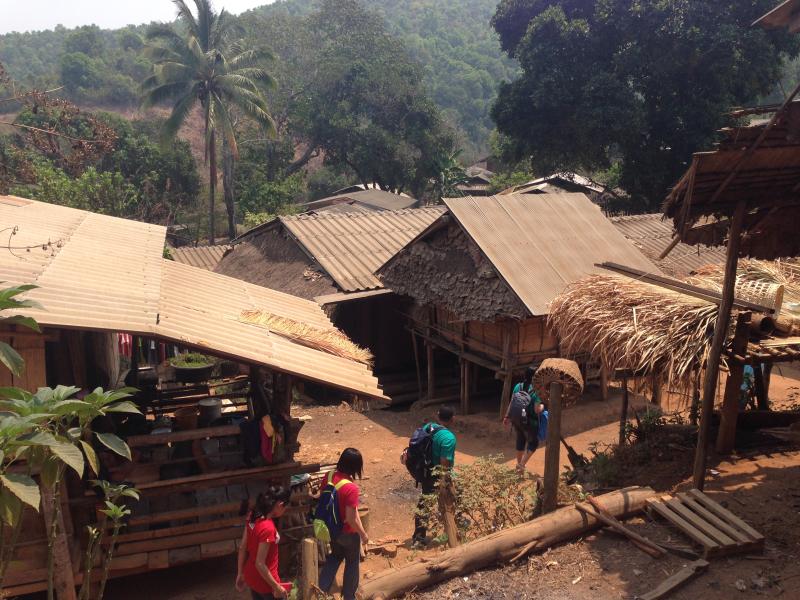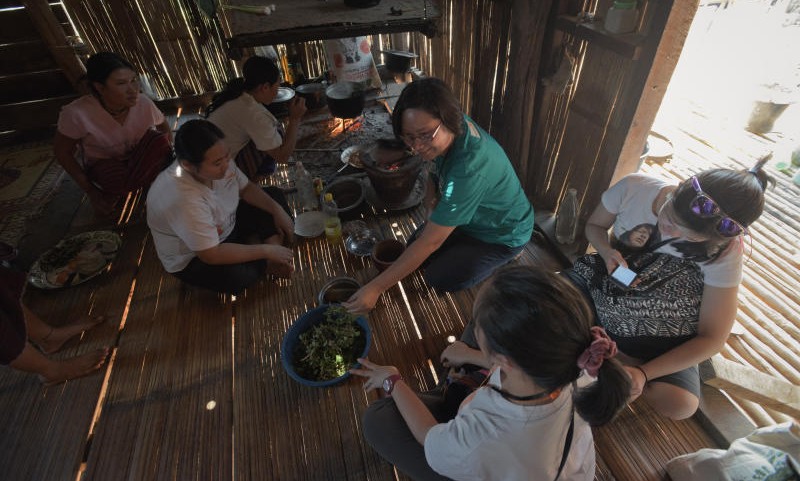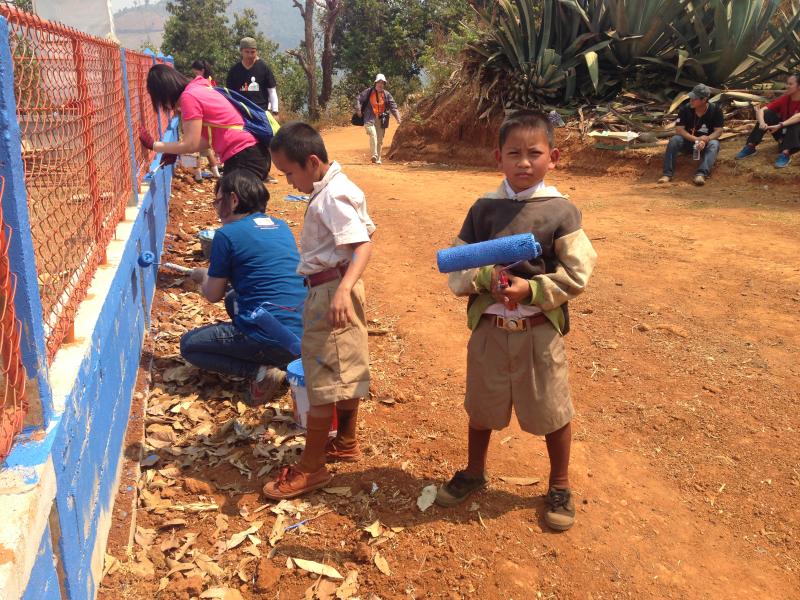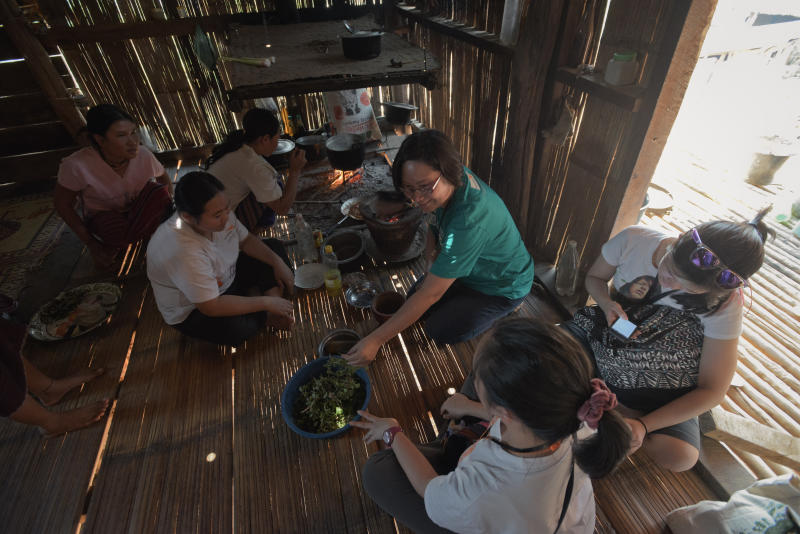By JAYDEE LOK
alltherage@thestar.com.my
PORNTHIDA Pimpimonwan has big dreams. The 10-year-old from the Karen tribe of Baan Khun Wong Nua Village of Mae Sariang, Thailand, already knows that in the future, she wants to be able to do more for her community.
“I want to become a doctor when I grow up,” said Pornthida with conviction. “It is very difficult for everyone here (in Baan Khun Wong Nua) to go to the hospital, so, I want to become a doctor, so that I can help them.”
The traditional culture of the Karen tribe makes it slightly harder for children like Pornthida to realise their aspirations. Thankfully, World Vision Thailand is there to help.
Tribal observation
“Open up your world” was the tagline for World Vision Malaysia’s Area Development Programme visit this year.
With that in mind, they brought four World Vision child sponsors and four regular teenagers from the Klang Valley – along with this R.AGE reporter – on a five hour drive through rough terrain, to show them the world of the Hmong and Karen tribes living in the dense forests of the Mae Sariang mountains.
“The reason for this trip is to show people how we can help the villagers,” said Saharat Paungplub, team leader of World Vision Thailand. “We want to show them where their money goes and how their contribution benefits the children.”
It is not uncommon for members of the general public to doubt the contributions of charity organisations. But having seen the living conditions of the children we visited at the Mae Sawan Luang and Baan Khun Wong Nua villages, it was quickly apparent how much change simple charity contributions can bring – if you donate through the right channels.
Both Mae Sawan Luang and Baan Khun Wong Nua are very similar to most farming villages located throughout Southeast Asia. Perhaps the most significant difference between farming villages in Thailand, Indonesia and the Philippines is the language of their road signs.
They may seem like completely self-sustaining people, considering how they grow their own crops and rear their own animals, but the villagers still need aid because geographically, they are so hard to get to. Each village is approximately 10km away from the other and because there are no evenly tarred roads, children need to travel by foot or motorbike to get to school.
On a typical day, farmers plough the fields with buffalos and young children go to school, though they find it difficult to pay attention to their teachers. Mothers strap infants onto their backs with large sarongs and prepare meals over small fires in their wooden huts. Chickens and pigs roam freely and live off food scraps on the ground.
Everything seemed so familiar
They live the simple life and seem as blissful as can be. What more could they possibly need?
World Vision strives to create sustainable development through what they call “Area Development Programmes” (ADP), rather than just providing financial aid. The Mae Sariang ADP began in 2010, and since then, many systems have been put in place.
Because the tribal villages are located up to 1,200m above sea level, they are hard to reach. Therefore, World Vision has built pipelines with water filtration systems and lavatories with proper plumbing to improve hygiene.
World Vision has also introduced the farmers to city tradesmen, to help them sell their crops and livestock.
It seems as if World Vision has already done so much, but Yajai Chaisupakit, Guest Visit Officer of World Vision Thailand, says that it is not enough.
“Many parents from the Karen tribe (in Baan Khun Wong Nua) think education is not important,” she said. “We want the children to know that school is important and that they can have a university education if they want to.”
On top of providing blankets and books to the 3,000 children from 47 villages in the Mae Sariang area registered under the charity, World Vision has set up a breakfast plan to ensure the kids are well-nourished, so they can have a better learning experience.
“Their guardians are not concerned about their eduction,” said Prasong Siphithakdumrong, a programme manager from World Vision Thailand. “Without breakfast, their mental capacity is lowered.”
They also supply water tanks to schools, so the children have clean water to drink, and provide vocational classes that teach useful life skills.
“Children need to at least complete their compulsory (primary) education,” he continued. “That’s why we want to teach them how to grow their own vegetables.”

The World Vision Malaysia team also visited Baan Khun Wong Nua village, home to a World Vision sponsored child.
It’s hard to tell if the children are aware of these improvements because they seem to have other things on their minds.
Natapon Jaisantipad, 11, said he doesn’t even have time to play with his friends. All he does is help his parents on the farm and look after his three younger siblings. Songkran, nine, dreams of becoming a soldier, just so he can get away from the village and all the chores his mother makes him do.
But there are also children like Pornthida, who are grateful for what they have and hope to make their village a better place.
“I don’t mind helping my mother with chores,” she said. “I feel so happy knowing that I can be of help.”
The four children from Malaysia who came along for the trip found it hard to imagine living under the same conditions as the children of Mae Sariang.
“We had to walk so far to get to the boy’s house from the school,” said Rebecca Jiam, nine, when the group was brought to a World Vision sponsored child’s home. The boy, Jakrapop Nithipreutgunthon, 11, takes the same walk every day with his two siblings.
How you can help
Not everyone can or wants to make monetary donations, even though they want to help other people. World Vision Malaysia marketing executive Ninian Tan suggests contributing your time to projects happening near your home instead.
“You can always volunteer,” said Tan. “There are many World Vision projects that happen locally that you can be a part of. Our annual 30-hour famine is on July 19 and 20, and you can volunteer to help or sign up to participate.”
For more information on how you can help make the dreams of children like Pornthida come true, go to worldvision.com.my, where you can start sponsoring a child today.




Tell us what you think!